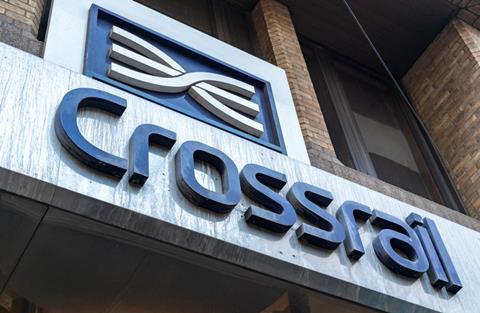Current cost of late-running railway now £18.9bn with more price hikes expected
The covid-19 pandemic has added £234m to the cost of Crossrail, according to MPs.
The Public Accounts Committee (PAC) has said the estimated cost of Crossrail stands at £18.9bn, a £1.9bn increase since its July 2019 report, while it repeated calls for the project to end expensive Tier 1 contracts to control spiralling costs.

The overspend includes Network Rail's work on the eastern and western branches, with the £1.9bn consisting of £1.5bn of Crossrail costs and £390m of Network Rail spending.
The committee's report said: "Schedule delay was the largest category of cost increase of Crossrail costs, accounting for £934m. This was followed by £228m of covid-19-related costs.
"The Department [for Transport] told us the £390m increase in Network Rail costs was due to historical issues, such as adding previously missing scope; impacts of the Carillion liquidation which took time and money to re-tender contracts; and lower than expected productivity of contractors."
The revelations came as the committee became the latest voice to raise concerns about a funding shortfall on the scheme's central London section.
Earlier this week Jacobs, the firm tasked with keeping an eye on the project for Transport for London and the Department for Transport, said delivery within the funding envelope would be "extremely challenging", while Crossrail admitted it "has not stated that delivery within the £825m additional funding is achievable".
Now the PAC has said that as of May this year Crossrail had estimated the cost to complete the programme would be between £15.82bn and £16bn, with a middle value of £15.9bn. Current funding is for £15.79bn.
In July this year Crossrail, which will be known as the Elizabeth line when it opens, reported that costs had increased and were now £150m above funding.
As part of trying to keep costs down, the PAC reiterated that it was imperative that Tier 1 contractors were demobilised quickly.
It said: "Crossrail Ltd must end the expensive Tier 1 contracts as soon as possible to control costs.
"The programme spent approximately £56m a month between October 2020 and March 2021, so any delay to the programme remains a significant risk to the eventual cost of the Elizabeth line."
The central part of the railway remains on schedule to open in the first half of next year with the line eyeing a May opening date.


























No comments yet